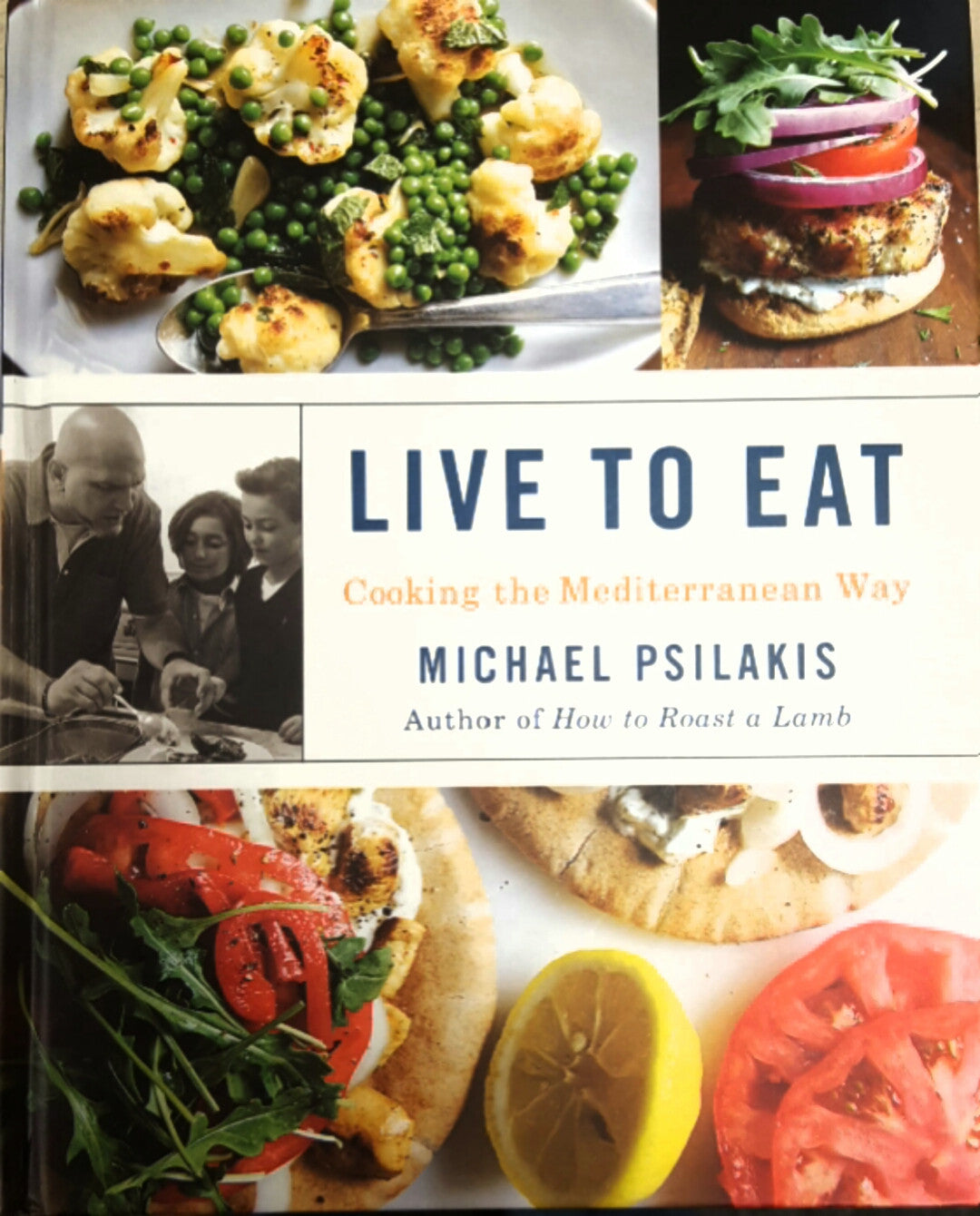I grew up on Mediterranean cooking myself, but never thought of it in the way my partner, Michael, so eloquently puts it in his new cookbook, "Live to Eat, Cooking the Mediterranean Way." So, I thought I would share verbatim a small portion of what captivated me. Enjoy...
FOOD DEFINES ME AS A PERSON. IT ALWAYS HAS. AS THE SON OF GREEK immigrants, I grew up in a home where preparing and enjoying meals was among the most important times of the day. I went out to become a chef and run several restaurants, and so I've quite literally relied on food for my livelihood and thus my life. But over the years, I began to use food as a method to cope and surrender, mourn and rejoice, avoid and confront. I unknowingly started to hide behind it, and use it in ways that went beyond nourishing my body and soul. My weight fluctuated like crazy: At any given time, you could tell how stressed or overworked I was just by how heavy I was. But then I would lose those extra pounds when things leveled off. How could something that had brought me so much joy, fame, and success become the very thing that I would struggle with for almost two decades?
I wrote this book because I needed a plan. I didn't want to be on a diet, because the word diet connotes one thing: deprivation. I don't know anyone who enjoys longing, especially for food. It's no surprise that diets fail. The Mediterranean diet, however, refers to healthier approach to eating, one in which food is prepared using intensely flavorful, inherently healthful ingredients that satisfy. It is almost as simple as that. The thing that separates the Mediterranean diet from others--and will keep you eating well and improving your health--is that it just tastes good.
For me, it only seemed natural to revisit the eating habits of my forebears, whose meals were based heavily on vegetables and fruits, whole grains, legumes and nuts, and healthy fats like olive oil. The Mediterranean diet emphases herbs and spices to flavor food, and features more fish and poultry than red meat. Pasta, that great American dinner fallback, is always a side dish---the portion size is meant as an accompaniment, not as a centerpiece of the meal. Drinking red wine in moderation is also part of the plan--as is enjoying the preparation and sharing of meals with family and friends. This last part, to my mind, is key.
I hope you enjoyed this little excerpt.

